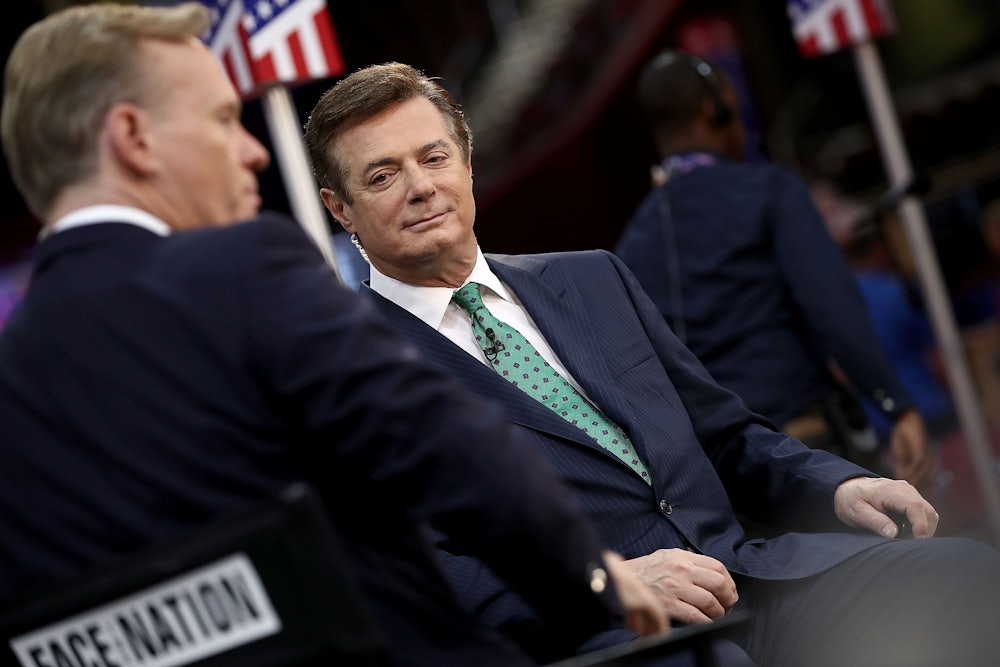Paul Manafort, Trump’s former campaign manager, “secretly worked for a Russian billionaire to advance the interests of Russian President Vladimir Putin a decade ago and proposed an ambitious political strategy to undermine anti-Russian opposition across former Soviet republics,” reported the AP on Wednesday. According to the report, Manafort also pledged to “influence politics, business dealings, and news coverage inside the United States.”
Manafort admitted in a statement that he worked for the billionaire, Oleg Deripaska, but denied that the work involved “representing Russian political interests.” Setting aside the fact that the distinction between economic and political interests in Russia is not as pronounced as Manafort would clearly like people to believe it is, this is simply not a credible denial.
The AP’s report contradicts numerous claims made by the Trump administration and Manafort himself, namely that Manafort never worked directly for Russian interests. This is part of a larger, amusing pattern. First, Manafort or others in Trump’s orbit deny any involvement with Russia. Then, when it becomes clear that they did, in fact, have some involvement with Russia, they make a more specific denial—until, of course, that denial is eventually refuted. Here’s Manafort in July, for instance:
July 2016 —
— Bradd Jaffy (@BraddJaffy) March 22, 2017
Q: Are there any ties between you and Putin or his regime?
Paul Manafort: “No, there are not. That’s absurd.” pic.twitter.com/WQLP3K8GmG
And, despite denials from both Manafort and the Trump administration, there is quite a bit of evidence that Manafort’s involvement in the campaign did not stop after he was dismissed as chair, or even after Trump won the presidency.
There are still many unanswered questions regarding Manafort’s relationship to Russia—when (or if) his work on behalf of Deripaska ceased, what his relationship with the Russian government was during that period, and what Trump knew about all of this. The best-case scenario for Manafort right now is simply that he has a thing for oligarchs, regardless of their country of origin—and that’s not a very good scenario.
But most importantly, this is the latest in a string of arguments for a lengthy and robust investigation into the Trump campaign’s ties to the Russian government, something that Republicans—including the ones tasked to investigate this issue in Congress—have been pushing back against.
